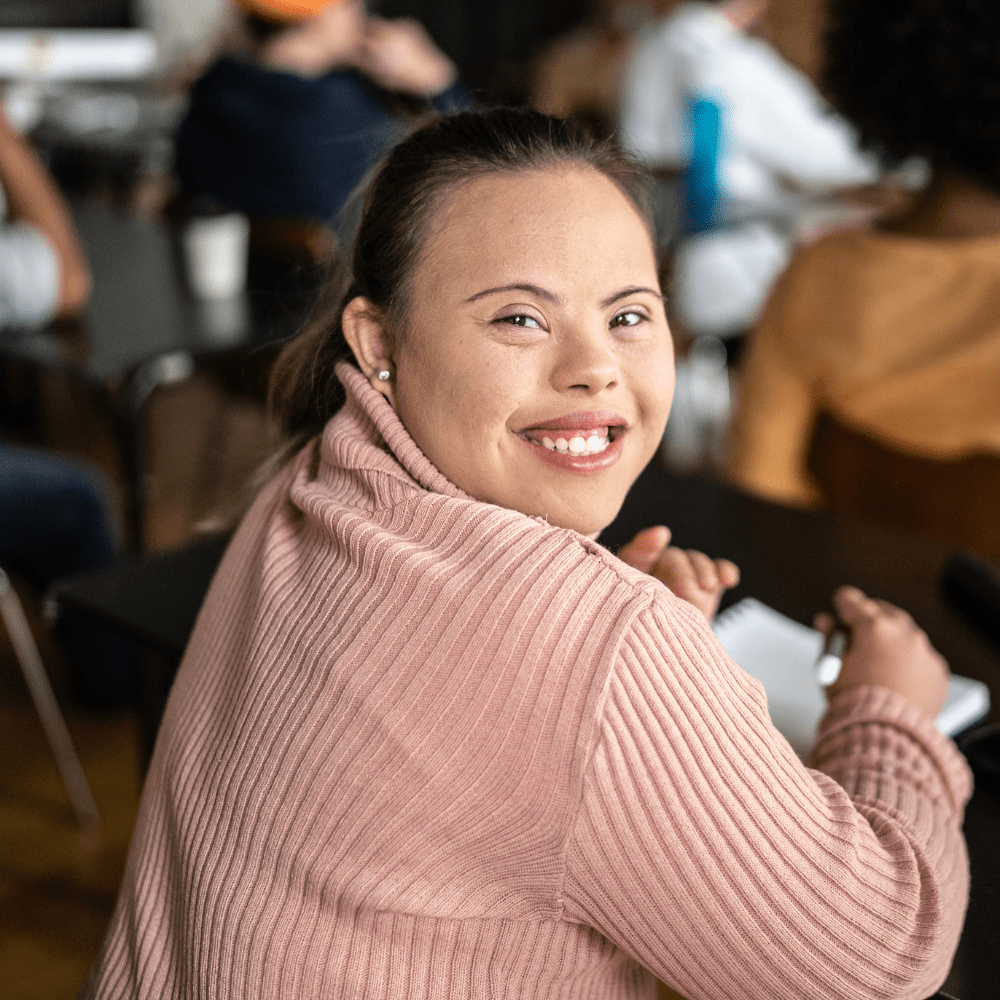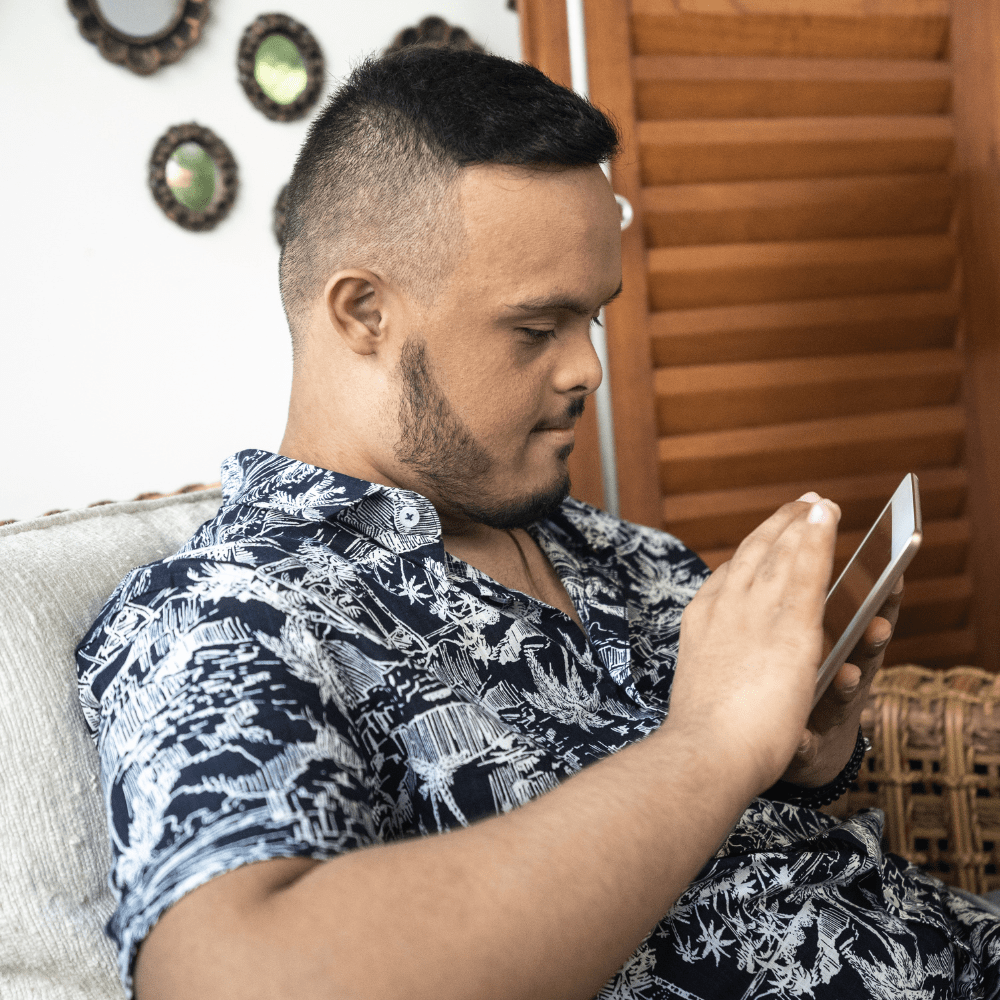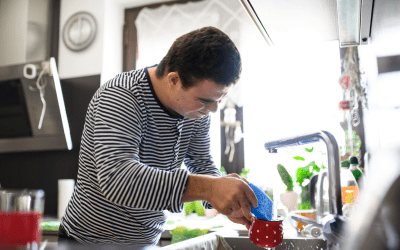According to KFF, in the United States, nearly 700,000 people have been on waiting lists or interest lists to receive home and community-based services in most years since 2016. Many are people with ie intellectual or developmental disabilities.
For people with I/DD who want to live more independently, there are many disability resources and tools you may not know about.
Being able to live on your own and make your own choices is a right, and it all starts with knowing how to find the right resources to make your dream a reality.
Read below to see some of the disability resources available to people with I/DD that will help make living independently easier:
Education Services
Education programs are available for everyone, including people with an intellectual or developmental disability. These types of programs can be for traditional learning. They are also used for teaching people vital life skills such as kitchen safety with programs such as Accessible Chef.
This disability resource is important because it allows people with I/DD to find and be more involved in the community, while also learning information that will help them in the future.
Being a part of an education program can be a great first step for people who are looking to be more independent and can be paired with assistive technology to make learning easier.

Communication Coaching
Learning to communicate well is an important skill that anyone can use. Communication might be more difficult for a person with an intellectual or developmental disability. There are disability services aimed at developing these skills. You may be able to find these by contacting your state’s Department of Social Services to see what disability resources are covered and how to get in contact with the provider.
Communication coaching does more than teach you how to communicate. It teaches you how to advocate for yourself and make your voice heard. This helps you feel brave enough to speak up so that others listen to what you need and want.
SafeinHome Remote Supports staff believe in clear communication, decision-making, and self-advocacy. They are there when you need them but give you the privacy and freedom to live the life you want.
Meal Services

This isn’t your typical resource, but meal services do fall under HCBS disability resources. Many times they come in the form of home-delivered meals. Perfect, if you are learning to live independently.
Many people find cooking to be a time-consuming activity that doesn’t always turn out how you would like it to. However, meals sent to your home that have clear instructions and are easy to cook can make healthy eating more realistic.
They are definitely a service that is worth it when transitioning into independent living.
Transitioning to Independence
Moving to an independent living situation is overwhelming for anyone. However, there are resources available to make this transition easier. Such disability resources can include transportation services similar to Uber, and meal preparation services such as HelloFresh. While cleaning services may be a great option, they are expensive. It’s better to learn how to keep your home clean on your own. If you want some great tips on how to keep your home tidy, read our previous article.
These services can help people with I/DD learn important life skills that will help them throughout the rest of their lives. Learning skills such as cooking, cleaning, or even interview prep for jobs, can make a huge difference in how comfortable they are living in their own home.
SafeinHome Remote Supports aid in the transition to an independent living environment. It can expand the capacity for independent living while developing essential life skills and fostering self-determination.
Remote Supports
This is one of the best HCBS services for people with disabilities who need support to live more independently.
Remote Supports consist of highly-trained specialists who are available 24/7. It gives people the peace of mind and confidence to live independently while knowing they are safe in their own homes and communities.
Combined with assistive technologies and support plans tailored to the specific needs and goals of each person, Remote Supports increase autonomy, independence, safety, and enhances the overall well-being of each person.

Remote Supports have made a big difference for many people. For example, they helped a teen in high school get to school on time and take his meds when he should. They also helped an adult with I/DD manage his daily life better so he can keep his job. These supports help people stay on track and live more independent lives.”
The Remote Supports staff are trained in behavioral health techniques and are always available, making it a great way to transition to independent living.
Home and Community-based services state that people with disabilities have the right to participate in the activities, events, places, and social networks that make up their communities. If you have questions about the resources available to you, check with your state for the most accurate information.
SafeinHome Remote Supports are a great resource to consider if you or someone you know with I/DD want and need support services. Whether you’re a case manager, caregiver, provider, or individual with I/DD, Remote Support Services, allows you to achieve independence while still living safely.
Alice Burns, Maiss Mohamed, and Nov 2023. “A Look at Waiting Lists for Medicaid Home- and Community-Based Services from 2016 to 2023.” KFF, 28 Nov. 2023, www.kff.org/medicaid/issue-brief/a-look-at-waiting-lists-for-medicaid-home-and-community-based-services-from-2016-to-2023/.




